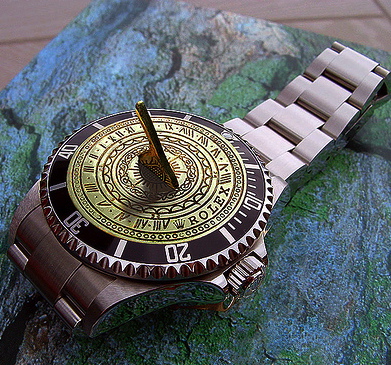 GMT,
GMT,  ITU,
ITU,  International Telecommunication Union,
International Telecommunication Union,  UCT,
UCT,  atomic clock,
atomic clock,  time
time  Saturday, November 5, 2011 at 08:14PM
Saturday, November 5, 2011 at 08:14PM  Image by AZRainmanEarly in 2012, the International Telecommunication Union (ITU) will meet in Geneva to talk about time. Specifically they will be considering a proposal to change the way we keep time, away from Greenwich Mean Time (GMT) and towards the more precise time kept by hundreds of atomic clocks around the world. Why are they considering this? Simply because determining “clock” time by the passing of the sun over any point of the Earth’s surface is inaccurate.
Image by AZRainmanEarly in 2012, the International Telecommunication Union (ITU) will meet in Geneva to talk about time. Specifically they will be considering a proposal to change the way we keep time, away from Greenwich Mean Time (GMT) and towards the more precise time kept by hundreds of atomic clocks around the world. Why are they considering this? Simply because determining “clock” time by the passing of the sun over any point of the Earth’s surface is inaccurate.
Evolution has tuned us into the rising and setting of the sun and it's tempting to assume that the Earth (and its daily rotation) is constant. It’s not.
We have known for hundreds of years that the actual length of days fluctuates.
As it happens, the term “GMT” has really only hung on for reasons of tradition. GMT was replaced in 1925 by “Universal Time” (UT) and again in 1972 by “Universal Coordinated Time” (UCT). In order to synchronise with “real” time (as measured by atomic clocks) leap seconds are occasionally added to UCT.
The current proposal is to redefine UTC entirely in line with the time kept by atomic clocks and abolish leap seconds, so that the passing of time is not tied to the rotation of the Earth. This would mean that over time, UTC would gradually move further and further out of step with the rising and setting of the sun.
Philosophically this might alter the way we think about time passing, but it will take hundreds of years and is not as catastrophic as some have suggested. According to AFP (reported on news.com.au), Britain’s science minister David Willetts has opposed the plan, suggesting that "Without leap seconds we will lose contact with the reality of Earth's rotation. Eventually our midnight would happen at noon."
I think Willets has missed the point. Midnight will always be where is has been – in the middle of the night - but 12am might mean different things in different places. What has 12am ever really meant anyway? Ask people who live at high latitudes. For significant parts of the year 12am is still light and at other times 12pm is dark. Our connection to the daily rotation of the Earth is as secure as it ever was. It’s just that sundials will indicate a different time to atomic clocks. I’m sure we’re smart enough can accommodate both if we need to.
If you’re interested, ITU is the United Nations agency for information and communication technologies. These are the people who (among other things) allocate global radio spectrum frequencies and satellite orbits, and develop ICT technical standards. This is important work, because without global standards for telephone and internet systems (for example) the connectivity and cooperation that we take for granted would be impossible. For a sense of what ITU does, the video on this page is actually pretty good.
 GMT,
GMT,  ITU,
ITU,  International Telecommunication Union,
International Telecommunication Union,  UCT,
UCT,  atomic clock,
atomic clock,  time
time